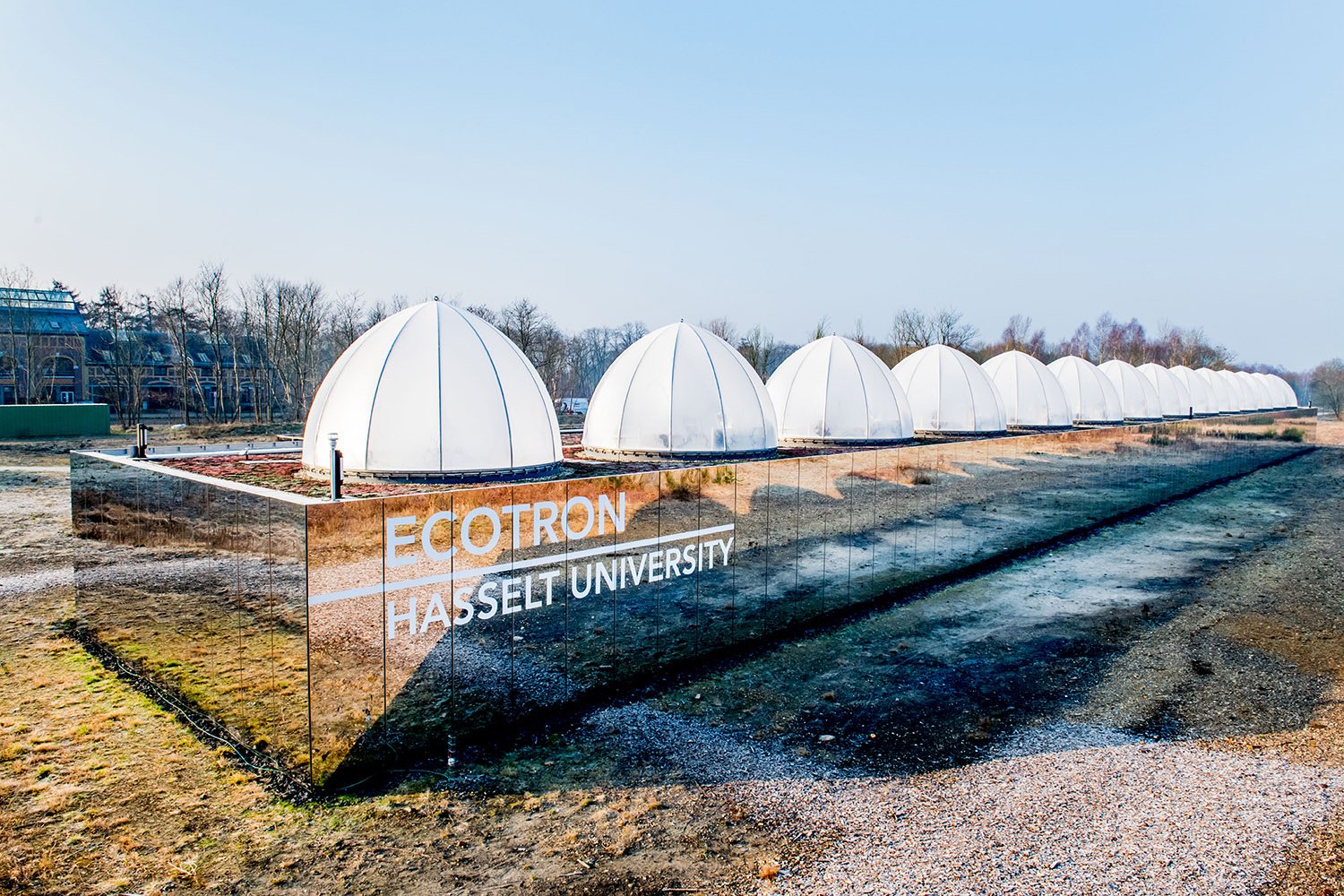The renowned scientific journal Nature Climate Change pays extensive attention to climate research at the Ecotron Hasselt University.
“Research into the impact of climate change on our ecosystems is very complex,” says project leader François Rineau. “With the Ecotron we have already made good progress in this research, it is great to see that this is also recognized by the international scientific world.”
It is (hopefully) clear that climate change has and will have an enormous impact on just about every aspect of our society.
“But despite recent progress, it is a major challenge to set up high-quality experiments that can properly map the impact of climate change on ecosystems and their impact on humans,” says Rineau. “For example, it is difficult in an experimental set-up to study the high complexity of the relevant environmental variables, such as temperature, humidity, precipitation and greenhouse gas concentrations in both the soil and the atmosphere, simultaneously.”

High-technological research infrastructure
With the Ecotron Hasselt University, an international and highly multidisciplinary team of researchers uses an almost unique high-tech research infrastructure. Climatologists, mathematicians, modellers, statisticians, plant- fauna and microbial ecologists, biogeochemists, hydrologists, economists… all work her together.
“And each of these researchers works from his or her own discipline to tackle together these scientific – technological and computational – challenges simultaneously,” Rineau explains.
[ad_336]
The scientists use the 100m long infrastructure with 12 large ecosystem rooms for this. Here, many environmental variables can be checked and controlled at the same time, and large samples of 2 m diameter and with a depth of 1.5 m can be exposed to different conditions. In this way, different scientific disciplines can monitor the changes from genes to ecosystem level simultaneously and with the help of innovative models they can simulate local climate projections from now until the year 2080. This holistic approach will only increase the knowledge of processes in an ecosystem (now and in future climate scenarios) and the knowledge about the value of ecosystem services.
“The possibility that we now have of highlighting this research and our research methods in a renowned scientific journal such as Nature Climate Change is quite a recognition for us,” says François Rineau. “We hope that our insights can serve as a basis for the management decisions of nature managers in the medium and long term. And that both policymakers and the general public will understand in a more detailed way what the social impact of changing ecosystems will be.”

[rand_post]
In the meantime, the researchers are also looking further ahead.
“For example, we believe that the results from our research can also provide more useful insights for the agricultural sector. A sector that must certainly be able to anticipate the expected changes in drought periods, precipitation patterns and greenhouse gas concentrations. “